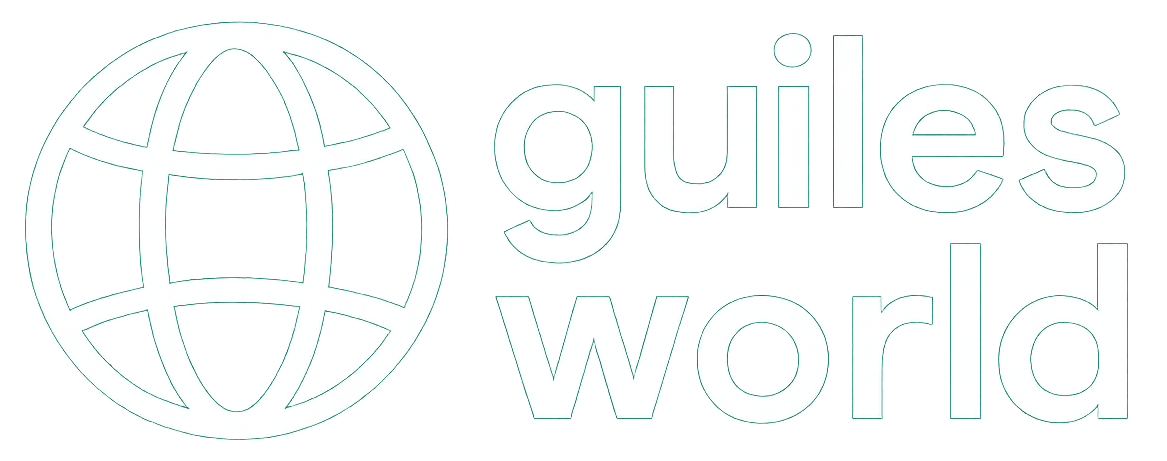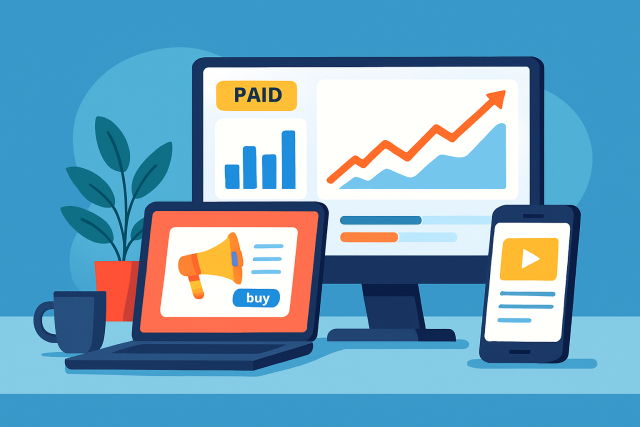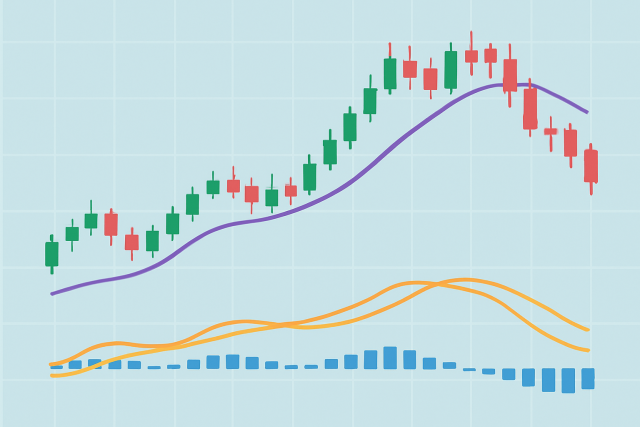
How Futures Brokers Compare on Fees and Features

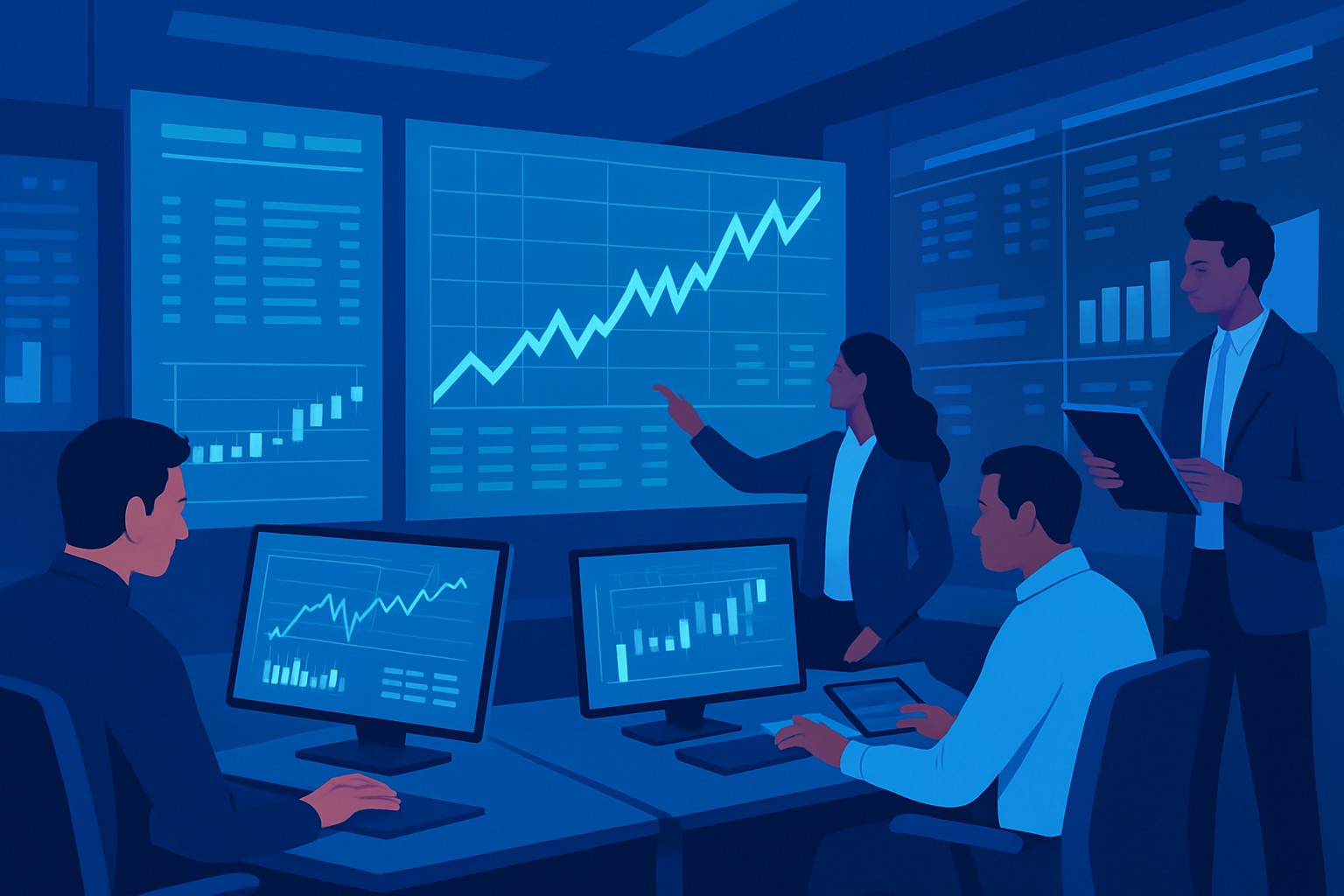
Futures trading offers a unique opportunity to cash in on price swings across commodities, indices and currencies. Your success usually boils down to choosing the right futures brokers. The fees they sling your way and the features their platform packs can seriously sway not just your profits but also how enjoyable your trading journey turns out to be.
Understanding Futures Brokers and Their Importance
Futures brokers serve as the vital bridge connecting traders to futures exchanges and give clients access to a broad spectrum of futures contracts like commodities, indices and currencies. Unlike typical stock brokers who mostly handle equities, futures brokers specialize in leveraged derivative trades with their own margin requirements and regulatory hoops. They provide essential tools and slick trading platforms plus hands-on support to help traders place orders smoothly and keep risks in check.
Important Fee Structures to Keep an Eye On When Comparing Futures Brokers
When sizing up futures brokers it’s key to get a firm grip on their fee structures. This includes commissions and exchange fees, platform charges, margin rates, bid-ask spreads and hidden costs lurking beneath the surface. Each of these can quietly nibble away at your net profitability especially if you’re trading frequently or moving large volumes.
| Fee Category | Description | Typical Range | Notes |
|---|---|---|---|
| Commission | Fee charged every time you trade a futures contract | $0.25 - $2.00 per contract | This can be charged per side or for the entire trade—so keep an eye out |
| Exchange Fees | Charges paid to exchanges, often passed down to you | Included or $0.02-$0.10 | The amount can vary quite a bit depending on which exchange you are dealing with |
| Platform Fees | Monthly or per-trade charges for software use | $0 - $100+ per month | Premium platforms usually come with a pricier tag, but sometimes you get what you pay for |
| Margin Rates | Interest on borrowed funds | 3% - 10% APR or specific | This really depends on your broker and account type—so shop around |
| Spreads | Gap between bid and ask prices | Variable | Wider spreads typically mean higher costs, something to watch for when timing trades |
| Hidden Charges | Sneaky fees like data, inactivity, or withdrawals | Varies | Always read your broker’s fine print carefully; these can sneak up on you |
Key Features to Keep in Mind When Picking a Futures Broker
- Robust and intuitive trading platforms packed with advanced charting and smooth order execution features that make your life easier.
- The freedom to trade a wide range of markets and different futures assets so you’re never stuck in a one-trick pony situation.
- Support for smart order types like stop-loss, trailing stops and bracket orders because sometimes you’ve gotta let the system do the heavy lifting.
- A treasure trove of research options, fresh market data and handy technical analysis tools to keep you one step ahead.
- Dependable mobile apps built for trading on the go whether you’re catching a coffee or stuck in a slow elevator.
- Friendly and knowledgeable customer support ready to help during trading hours so you’re never left hanging when it matters most.
- Educational resources and tutorials crafted for rookies and seasoned traders alike making sure everyone has a fair shot at success.
- You should make sure that your futures brokers is on tradingview
Each feature caters to different kinds of traders. Technical tools usually come in handy for active strategy-driven individuals while detailed research and solid customer support are a godsend for beginners finding their feet.
Choosing Fees and Features That Truly Match Your Trading Style and Goals
Traders should really think about how often they dive into the market and the instruments that catch their eye. They should also consider how much risk they’re comfortable taking on. Keeping these in mind makes it a lot easier to zero in on fee structures and platform features that support their game plan.
Start by taking a good look at your usual monthly trading volume to get a clear picture of how commissions might nibble away at your profits.
Pin down which features really move the needle for your strategy, whether that is advanced order types or access to hard-to-reach markets.
Take a careful stroll through the fees charged by different brokers, keeping a sharp eye on commissions and margin rates and any sneaky platform costs lurking around.
Dive into demo accounts or trial versions to feel out how user-friendly and reliable the platforms actually are—sometimes the real deal surprises you.
Give customer service a whirl by reaching out. It’s a good way to size up their availability and how quickly they come through when you need them.
Double-check that the broker ticks all the boxes for regulatory compliance and security standards because keeping your investment safe is non-negotiable.
Comparing the Leading Futures Brokers with a Closer, More Personal Look at Fees and Features
| Broker Name | Commission (per contract) | Platform Features | Markets Available | Minimum Deposit | Customer Support Rating |
|---|---|---|---|---|---|
| Broker A | $0.50 | Boasts advanced analytics and lets you tailor workspaces to your liking, making trading feel like second nature | Covers energy, metals, indices, and currencies with a solid lineup | $500 | 4.5/5 |
| Broker B | $1.00 | Packs a punch with a robust mobile app and even supports algorithmic trading—you could say it’s built for serious movers | Includes agriculture, metals, US, and global indices to keep things diverse | $1,000 | 4.0/5 |
| Broker C | $0.25 | Runs on a no-frills platform that’s perfect for beginners finding their footing | Focuses on indices and commodities, keeping it simple and straightforward | $250 | 3.8/5 |
| Broker D | $0.75 | Loaded with professional-grade tools plus a comprehensive API to satisfy the tech-savvy traders out there | Offers a full futures suite including forex, giving you plenty to sink your teeth into | $2,000 | 4.8/5 |
This comparison zeroes in on brokers tailored to different kinds of traders. Beginners usually gravitate towards Broker C because of its low minimum requirements and easy interface. It is perfect for getting your feet wet without any hassle. Active traders tend to squeeze the most out of Broker D which comes loaded with advanced features that really shine once you know your way around. Broker A strikes a nice balance by keeping costs in check and offering solid tools. It makes for a reliable middle ground.
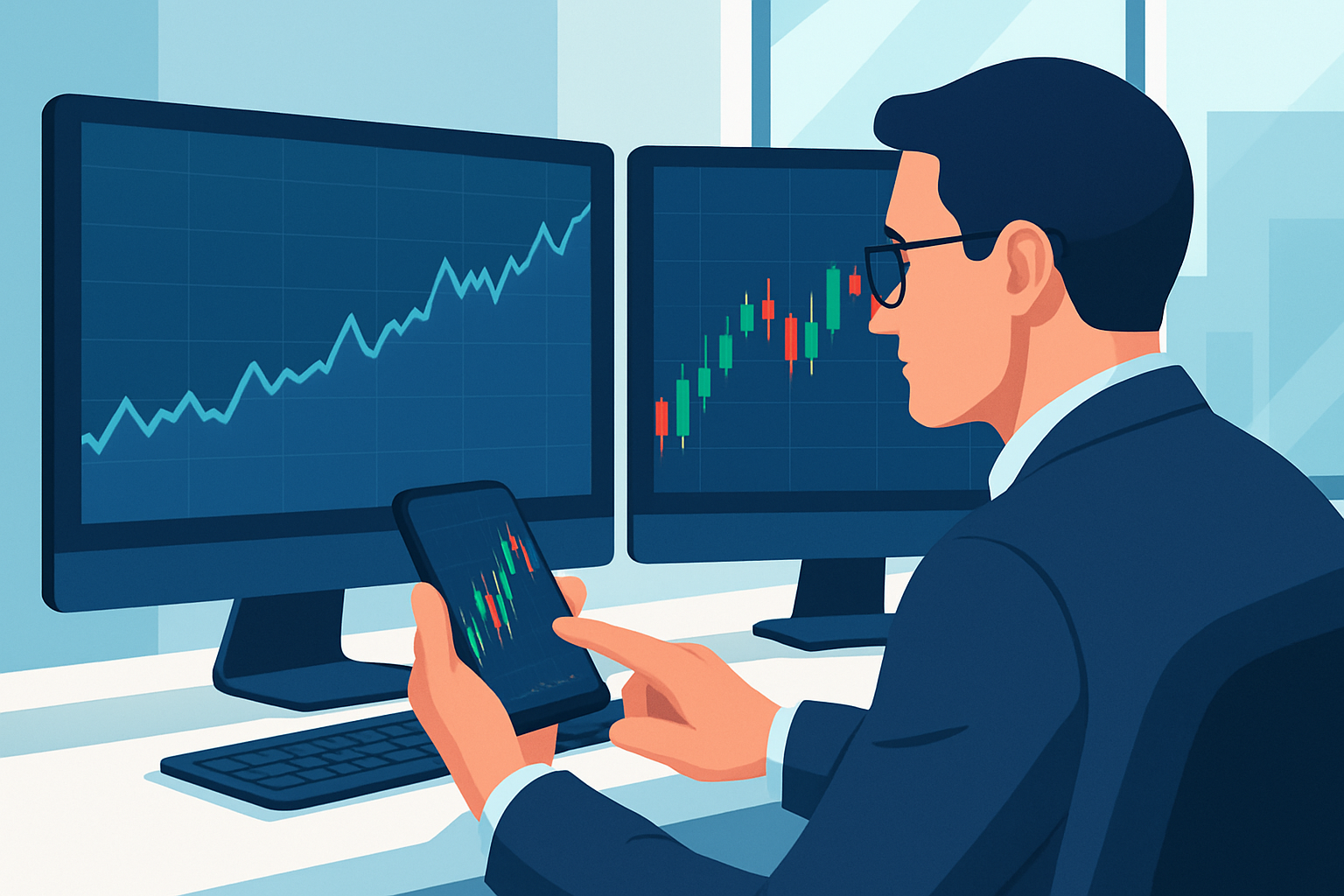
A trader using multi-device setups to analyze futures market data and execute trades efficiently.
Common Misunderstandings About Futures Broker Fees and Features That Often Trip People Up
A lot of traders tend to assume that brokers with the lowest commission fees are the obvious winners but that outlook skips some important details like the quality of the platform and how quickly orders get executed. It also overlooks the kind of customer support you receive when things go sideways. Sometimes shelling out a little extra upfront pays off with smoother trades and more reliable risk management tools.
Picking a futures broker just by the fees alone can be a bit of a wild goose chase. It’s really worth taking a closer look at the platform’s reliability, customer service, and features as well. In my experience, these things often reveal hidden costs and trading hiccups that can quietly chip away at your profits.
Tips for Evaluating Futures Brokers Using Demos and Trial Accounts (Because Nothing Beats a Test Drive)
Demo accounts are a great way to try futures brokers' platforms without risking a single cent. They let you test order execution speed and get a feel for how solid the platform is. You can also tinker with charting tools and gauge if customer support is as responsive as they claim—all before you commit. Plus, you’ll find brokers offering free demo accounts on TradingView, which helps if you want to practice futures trading without pressure.
